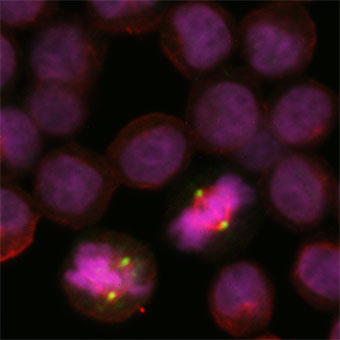RNA in Health and Disease
Our research focuses on many different aspects of RNA function in human cells, and their association with different physiological and pathological processes.
These include the control of polyadenylation and its role in cancer and inflammatory disease, including osteoarthritis, microRNA biogenesis and function and its role in viral infection, and control of translation in cancer and Alzheimer’s disease.
We investigate these questions using a wide range of molecular and cell biology techniques, including state-of-the art approaches that apply next generation RNA sequencing to analyse newly synthesised RNA or poly(A) tail length. We are involved in developing drugs targeted to RNA driven processes such as translation and polyadenylation as well as in designing and evaluating coding and non-coding therapeutic RNAs including microRNAs, antagomirs and circular RNAs. An emerging theme the identification of the protein and RNA targets of natural compounds.
 An activated kinase localises to spindle poles in mitotic cells
An activated kinase localises to spindle poles in mitotic cells
RNA is central to gene expression. In addition to its canonical function as a messenger from which genetic information is translated into protein, many different classes of RNA exist with regulatory roles in different cellular processes. RNA expression and function is tightly controlled and frequently disrupted in disease, and RNA regulatory processes such as translation initiation, splicing and microRNA activity are increasingly being pursued as therapeutic targets. A proper understanding of how RNA regulation occurs is important for the identification of new drug targets.
Key contacts:
Proposed publications:
- Meijer, H.A., Schmidt, T., Gillen S.L., Langlais, C., Jukes-Jones, R., De Moor, C.H., Cain, K., Wilczynska, A. and Martin Bushell (2019). DEAD-box helicase eIF4A2 inhibits CNOT7 deadenylation activity. Nucl. Acids Res., 47, 8224-8238
- Ashraf, S., Radhi, M., Gowler, P., Burston, J.J., Gandhi, R.D., Thorn, G.J., Piccinini A.M., Walsh, D.A., Chapman, V. and De Moor, C.H. (2019) The polyadenylation inhibitor cordycepin reduces pain, inflammation and joint pathology in rodent models of osteoarthritis. Scientific Reports, 9, 4696
- Ahmed C.S., Winlow P.L., Parsons A.L., Jopling C.L. Eukaryotic translation initiation factor 4AII contributes to microRNA-122 regulation of hepatitis C virus replication. Nucleic Acids Research (2018) 46: 6330-6343